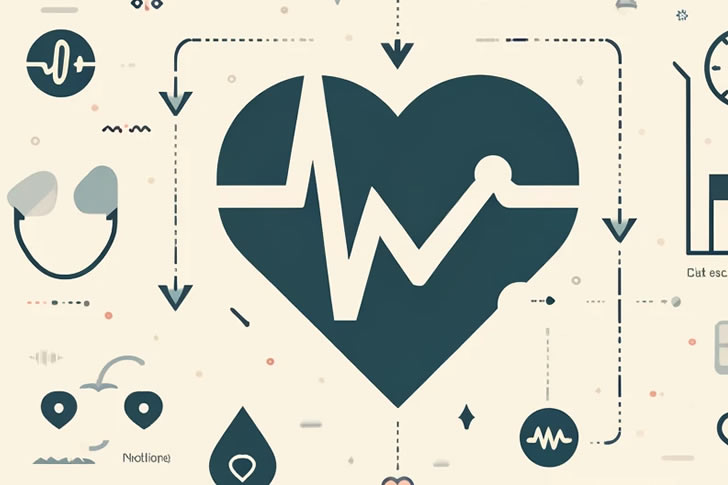Congestive Heart Failure’s Sneaky Warning Signs – Are You Aware?
7Congestive heart failure (CHF) is a chronic progressive condition that affects the pumping power of your heart muscles. While often referred to simply as “heart failure,” CHF specifically involves the inability of the heart to pump enough blood to meet the body’s needs. Understanding the warning signs can lead to early diagnosis and management, potentially improving quality of life.

Understanding Congestive Heart Failure
CHF affects approximately 6.2 million Americans, according to the Centers for Disease Control and Prevention. It can occur when the heart muscle is weakened by conditions such as coronary artery disease, past heart attacks, or high blood pressure, leading to a buildup of fluid around the heart and throughout the body.
Early Detection: Key Facts and Figures
- Prevalence: Around 1 in 5 people will develop heart failure in their lifetime.
- Hospitalizations: Heart failure contributes to nearly one million hospitalizations each year in the U.S.
- Mortality: Approximately half of those diagnosed with heart failure will die within 5 years of diagnosis.
These statistics highlight the critical nature of recognizing early signs and symptoms of CHF.
Sneaky Warning Signs of CHF
Recognizing the early signs of CHF can be challenging, as they may be subtle and often mistaken for normal signs of aging. Here’s a list of some less obvious symptoms:
- Increased Need to Urinate at Night (Nocturia): Frequent urination at night may be related to the kidney’s attempt to rid the body of excess fluid accumulated due to poor heart function.
- Persistent Cough or Wheezing: A cough that worsens when lying down may be a sign of fluid accumulation in the lungs.
- Swelling in the Abdomen (Ascites): Less commonly recognized than swelling of the legs and ankles.
- Sudden Weight Gain: Gaining several pounds in a few days can be a sign of fluid buildup.
- Decreased Appetite: Often overlooked, loss of appetite might be linked to gastrointestinal swelling and fluid buildup.
- Difficulty Concentrating or Decreased Alertness: These can result from reduced blood flow to the brain.
- Increased Heart Rate: Feelings of having a fast-beating, fluttering, or pounding heart, especially when not engaging in physical exertion.
FAQ on Warning Signs
Q: Why does CHF cause swelling?
A: The heart’s decreased ability to pump blood causes fluids to back up in the tissues, leading to swelling, often noticeable in the feet, ankles, and legs.
Q: Can these symptoms appear suddenly?
A: Yes, symptoms can develop suddenly in acute cases, though they more commonly build gradually.
Q: What should I do if I notice these signs?
A: Consult with a healthcare provider for evaluation and potential diagnostic testing if you experience one or more of these symptoms.
Causes and Risk Factors
The primary causes of CHF are conditions that damage or overload the heart, including:
- Coronary Artery Disease
- High Blood Pressure
- Past Heart Attacks
- Valvular Heart Disease
- Diabetes, obesity, and lifestyle factors such as smoking and sedentary habits
These conditions can weaken the heart over time, necessitating increased awareness and proactive management.
Treatment and Management
Treatment of CHF aims to improve the symptoms and stop the progression of the disease. Here are key components of CHF management:
- Medications: Such as ACE inhibitors, beta-blockers, and diuretics to manage symptoms and improve heart function.
- Lifestyle Changes: Including dietary adjustments, exercise, and weight management.
- Surgery and Devices: In severe cases, surgical interventions or devices like pacemakers may be necessary.
Prognosis with Treatment
With proper treatment, many people with CHF can lead a full, productive life. Treatment can dramatically improve symptoms and survival rates, highlighting the importance of early detection and ongoing management.
Professional Analysis
Survival Rates with Treatment
| Years after Diagnosis | Survival Rate (%) |
|---|---|
| 1 | 80-90 |
| 5 | 50-60 |
| 10 | 10-30 |
Key Points:
- Early Diagnosis: Crucial for improving long-term outcomes.
- Medication Adherence: Essential for symptom management and quality of life.
- Regular Monitoring: Necessary to adjust treatments and manage progression.
Conclusion
Early recognition and treatment of CHF can significantly alter the course of the disease. Awareness of the sneaky signs of CHF, combined with effective management strategies, can enhance both survival and quality of life.
References
To validate the information and conclusions in this analysis, here are three credible sources:
https://my.clevelandclinic.org/health/diseases/17069-heart-failure-understanding-heart-failure
https://www.medicalnewstoday.com/articles/signs-of-congestive-heart-failure
https://www.heart.org/en/health-topics/heart-failure/warning-signs-of-heart-failure







Recent Comments